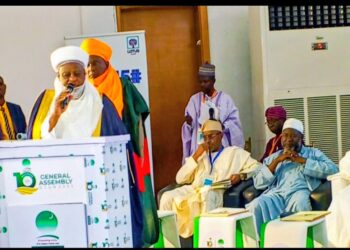Niger State Government Faces Legal Challenge Over Reduced Local Government Chairmen Tenure .
The Niger State Government is under judicial scrutiny following the submission of court papers contesting the constitutionality of its Local Government Law, particularly Section 29(1) and (2) of the Niger State Local Government Law, 2001 (as amended).
Documents obtained indicate that the law establishes a three-year tenure for elected chairmen and councillors in the state’s 25 local government areas. The originating summons, filed before the Federal High Court in Abuja, calls for judicial interpretation and potential nullification of the law.
The plaintiffs argue that the three-year term conflicts with Section 7(1) of the 1999 Constitution of the Federal Republic of Nigeria, along with Sections 108 and 150 of the Electoral Act, 2022, which stipulate a uniform four-year tenure for all democratically elected local governments across the country.
The plaintiffs’ case is rooted in Paragraph 1 of Part II of the Second Schedule to the 1999 Constitution, which reserves authority on the “formation, structure, composition, finance and functions of local governments” for the National Assembly. They contend that the Niger State Government has overreached its powers, instituting provisions that contradict superior federal laws.
Central to the legal challenge is the planned local government elections set for November 1, 2025. The plaintiffs assert that proceeding with these elections before the current chairmen and councillors complete their four-year term would be unlawful, effectively truncating their mandate in violation of constitutional guarantees.
The suit seeks a court order restraining state authorities, including the Niger State Independent Electoral Commission (NSIEC) and the State House of Assembly, from conducting elections until the current officials have fulfilled their constitutionally protected terms.
Legal experts predict that a ruling in favor of the plaintiffs could have significant ramifications, potentially invalidating the contentious three-year provision and prompting other states with similar regulations to align their laws with federal standards.
The plaintiffs emphasize that Section 29(1) and (2) of the Niger State Local Government Law undermines democratic governance principles and conflicts with national legislation. They reference past legal precedents and argue that any deviation from federally established tenure rules should be invalidated.
As of this report, the Niger State Government has not officially responded to the legal challenge. However, sources within the Ministry of Justice indicate that internal legal consultations are currently underway.
Political analysts note that this development may complicate the Bago administration’s local government transition plans and could open broader debates on the autonomy of states in regulating elected officials’ tenure.
The court is anticipated to schedule a hearing date soon, and stakeholders will be watching closely as the judiciary weighs in on the delicate balance between state and federal authorities regarding local governance in Nigeria. Today, the matter was mentioned in court and has been referred to the Chief Judge for reassignment to a vacation judge.

















